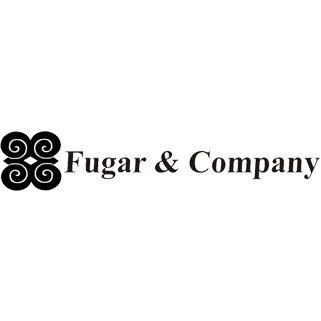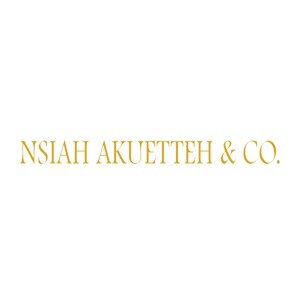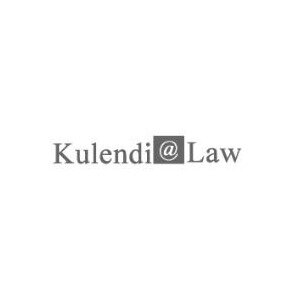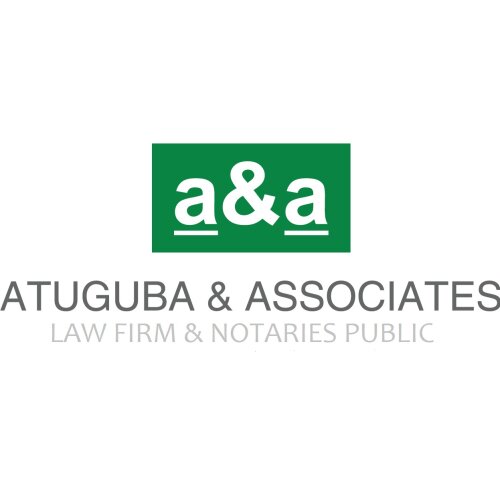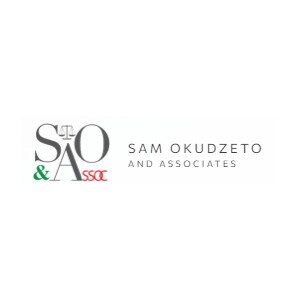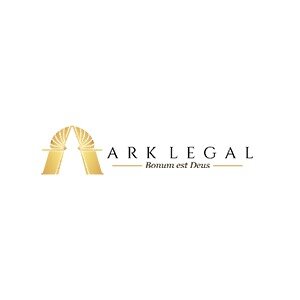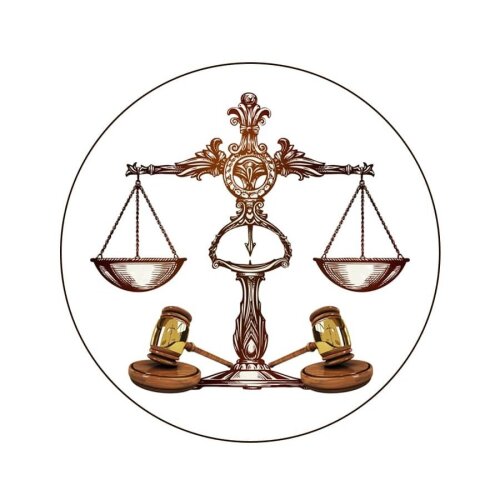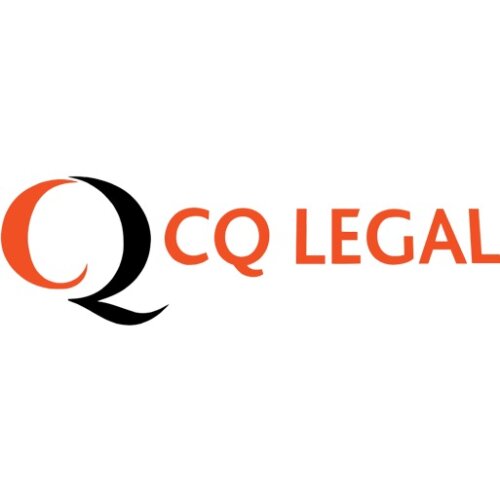Best Funds & Asset Management Lawyers in Ghana
Share your needs with us, get contacted by law firms.
Free. Takes 2 min.
Or refine your search by selecting a city:
List of the best lawyers in Ghana
About Funds & Asset Management Law in Ghana
Funds and asset management in Ghana involves the regulation and operation of entities that handle pooling, investing, and managing financial assets on behalf of clients or investors. The sector covers mutual funds, unit trusts, private and public investment funds, as well as asset management firms and trustees handling pension funds. Due to the role these entities play in securing and growing wealth, a robust legal and regulatory framework exists to ensure investor protection, market stability, and professionalism among operators. Regulatory oversight is primarily provided by the Securities and Exchange Commission (SEC) of Ghana, complemented by other bodies such as the Bank of Ghana and the National Pensions Regulatory Authority (NPRA). Compliance with both statutory and regulatory requirements is central to successful operation within this sector.
Why You May Need a Lawyer
Legal support in funds and asset management is often critical due to the technical and regulated nature of the sector. Common situations where individuals and companies require legal advice include:
- Setting up an asset management company, mutual fund, or unit trust
- Compliance with licensing and regulatory requirements from the SEC or NPRA
- Drafting and reviewing investment management agreements or trust deeds
- Handling disputes involving investors, fund managers, or regulators
- Conducting due diligence for mergers, acquisitions, or restructuring of asset management firms
- Navigating anti-money laundering (AML) and know-your-customer (KYC) obligations
- Resolving issues of mismanagement, fraud, or breaches of fiduciary duty
Securing legal counsel ensures that you and your investments are protected and compliant with complex local laws and regulations.
Local Laws Overview
The main legal frameworks governing funds and asset management in Ghana include the Securities Industry Act, 2016 (Act 929), the Companies Act, 2019 (Act 992), the National Pensions Act, 2008 (Act 766), and the Collective Investment Schemes (CIS) Regulations, 2001 (L.I. 1695). Key aspects include:
- SEC Licensing: Every fund manager, investment advisor, and collective investment scheme (such as mutual funds and unit trusts) must be licensed by the Securities and Exchange Commission (SEC).
- Minimum Capital Requirements: Operators must meet statutory minimum capital thresholds to maintain financial stability and investor confidence.
- Investor Protection: Operators must safeguard client funds through segregation, regular reporting, and adherence to best practices in stewardship and risk management.
- Disclosure and Reporting: Regular financial disclosures and audits are mandatory, ensuring transparency for regulators and investors.
- Penalties for Misconduct: The SEC has broad powers to investigate and sanction fund managers or asset management firms for breaches, fraud, or mismanagement.
- Operation of Pension Funds: Pension funds are regulated under the National Pensions Act and supervised by the NPRA, with specific rules for trustees, fund managers, and custodians.
- AML and KYC Obligations: Operators must implement stringent policies to detect and prevent money laundering and other illicit activities.
Frequently Asked Questions
What is the role of the Securities and Exchange Commission in asset management?
The SEC licenses, regulates, and supervises all entities involved in fund and asset management, ensuring compliance with Ghanaian law to protect investors and the financial system.
Do I need a license to start a fund management company?
Yes, anyone wishing to operate as a fund manager or run a collective investment scheme in Ghana must obtain a license from the SEC and comply with its requirements.
What is the difference between a mutual fund and a unit trust in Ghana?
Both are forms of collective investment schemes but differ in their legal structure. Mutual funds are usually companies issuing shares to investors, while unit trusts are set up as trusts issuing units instead of shares.
How are investor funds protected?
Investor funds are protected through legal requirements for asset segregation, regular reporting, professional management, oversight by trustees or custodians, and SEC supervision.
What are my rights as an investor in a collective investment scheme?
Investors in collective investment schemes have rights to receive timely and accurate reports, participate in key decision-making (such as voting at general meetings), redeem their investments, and be treated fairly and transparently.
Can foreign individuals or companies invest in or manage funds in Ghana?
Yes, subject to compliance with applicable investment laws, foreign entities and individuals can invest in Ghanaian funds or obtain SEC approval to operate as fund managers, but may face certain restrictions or capital requirements.
What are the reporting requirements for fund managers?
Fund managers must provide periodic reports to the SEC and investors, including audited financial statements, portfolio updates, and material information affecting the fund's performance or operation.
What happens if a fund manager violates the law?
If a fund manager breaches the law or regulations, the SEC can impose fines, suspend or revoke licenses, and refer criminal matters for prosecution. Investors may also pursue legal action for compensation.
How do I resolve a dispute with my fund manager?
You may first seek to resolve the dispute directly with the fund manager or through internal complaints procedures. If unresolved, you can report the issue to the SEC or take legal action in the courts of Ghana.
How can I perform due diligence on a fund or asset manager?
Verify their SEC licensing status, review audited financial statements, assess disclosure practices, research their management history, and seek independent legal advice where necessary.
Additional Resources
Several organizations and resources are available to assist with funds and asset management matters in Ghana:
- Securities and Exchange Commission (SEC): The main regulator for the capital markets sector. Provides information on licensing, regulations, investor protection, and public notices.
- Bank of Ghana: Regulates deposit-taking institutions and financial market stability.
- National Pensions Regulatory Authority (NPRA): Supervises pension fund trustees, managers, and custodians.
- Ghana Investment Promotion Centre (GIPC): Guides on foreign investment and legal requirements within Ghana.
- Legal Aid Commission of Ghana: Provides guidance and assistance on accessing legal services.
- Ghana Bar Association: Helps locate qualified lawyers with expertise in funds and asset management.
Next Steps
If you require legal assistance related to funds and asset management in Ghana, consider the following steps:
- Clearly define your objectives and the nature of your legal concern, whether it involves regulatory compliance, investment disputes, fund formation, or another issue.
- Collect relevant documents, such as contracts, correspondence, disclosures, and regulatory notices.
- Consult the Securities and Exchange Commission’s database to verify the licensing status of funds or managers involved.
- Contact a qualified lawyer who specializes in investment law, funds, and asset management. The Ghana Bar Association or Legal Aid Commission can help you identify a suitable professional.
- Discuss your needs and expectations with your lawyer to develop a plan of action tailored to your case.
Early legal guidance can help you navigate complex regulations, avoid costly mistakes, and secure your investments effectively in Ghana’s dynamic financial market.
Lawzana helps you find the best lawyers and law firms in Ghana through a curated and pre-screened list of qualified legal professionals. Our platform offers rankings and detailed profiles of attorneys and law firms, allowing you to compare based on practice areas, including Funds & Asset Management, experience, and client feedback.
Each profile includes a description of the firm's areas of practice, client reviews, team members and partners, year of establishment, spoken languages, office locations, contact information, social media presence, and any published articles or resources. Most firms on our platform speak English and are experienced in both local and international legal matters.
Get a quote from top-rated law firms in Ghana — quickly, securely, and without unnecessary hassle.
Disclaimer:
The information provided on this page is for general informational purposes only and does not constitute legal advice. While we strive to ensure the accuracy and relevance of the content, legal information may change over time, and interpretations of the law can vary. You should always consult with a qualified legal professional for advice specific to your situation.
We disclaim all liability for actions taken or not taken based on the content of this page. If you believe any information is incorrect or outdated, please contact us, and we will review and update it where appropriate.
Browse funds & asset management law firms by city in Ghana
Refine your search by selecting a city.



